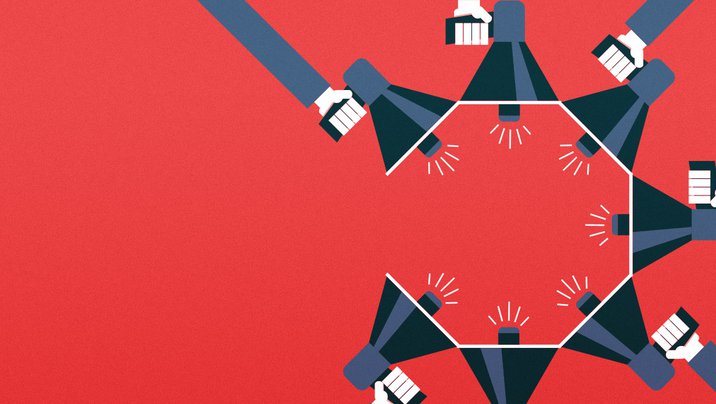If you currently work in B2B sales, then you need to begin thinking differently about your career direction and begin to plan appropriately for all of the change that is coming.
How to find your next job in B2B sales:
As I have said in many previous posts, B2B sales has never been more difficult or more misunderstood than it is today, and there now is ample evidence supporting this statement. With more than 63% (according to HBR) of B2B sales people now under-performing (or failing to hit quota) it’s no surprise that the average tenure of a B2B sales person is now as low as 16.8 months. Combine this with increased business velocity, shortening of product life-cycles, increased competition and disruption, it’s now obvious why so many B2B sales folks are struggling to see a clear career pathway.
- Are you currently looking for a new B2B sales role? In-between engagements?
- Are you now job hopping every 18 months?
- Are you thinking about getting out of sales?
- Are you finding it difficult to get the attention of recruiters or prospective new employers?
- Are you working for the kind of outdated leadership that I wrote about in my last LI post?
If you have answered yes to any of these questions, then you are most definitely not alone. I speak with sales people daily who are increasingly concerned about their career prospects, but the burning question is what to do about it?
It’s now time to think differently about your career in B2B sales:
1. Your network is your net-worth:
Never has it been more important for sales people to have an extensive network that they can tap into for the next sales opportunity, and that important next job. According to an interesting article by Jessica Stillman, “the biggest predictor of career success in the modern era, is not talent, brains, grit, even luck or connections. It's gaining access to an open network” - a powerful network of like-minded people collaborating around a specific topic to help each other and create value.
If you are struggling (like most of us) to gain the attention of the recruitment companies, then you now need another angle – a place to go to proactively enhance your career.
2. Workplace Dynamics and Change:
As recently as five years ago, freelance work was seen the domain of creatives and those who couldn’t find a ‘real’ job. Today, on the other hand, freelance workers are used across a range of sectors – to develop software, to construct buildings, to run events, and even to execute professional sales campaigns.
According to the Bureau of Labor Statistics, “In 2015, about 10% of the US workforce was self-employed. By 2020, the number rises to more than sixty million people (40%)". When you couple this marked increase of freelance work with the growing penetration of Millennials (whom definitely do NOT want a 'job-for-life') in the workforce, along with the adoption of flexible work practices, then the future, and nature, of employment looks very different in 2018 onward.
What’s most interesting, though, is that contractor/freelance positions are now being held by highly qualified and experienced professionals, including C-suite executives, consultants and even attorneys, and I now know more and more sales professionals whom are establishing themselves as freelance specialists rather than risk getting stuck in the job-hopping death spiral.
3. The 'On-Demand' Economy & Entrepreneurialism:
In Australia, 97% of all businesses are considered small businesses and there are 2.1M small businesses in total. Like most western capitalist economies, entrepreneurialism down under is now exploding with start-ups alone now having the potential to create half a million new jobs by 2033 (according to a recent PWC report). Entrepreneurs who start businesses greatly contribute to net job creation, and a recent Bentley University survey of Millennial's found 66% of respondents have a desire to start their own business, 37% would like to work for themselves, and 25% would like to own their own company. Thus, the trend here could not be clearer – more and more of us will be working inside small and dynamic businesses in the future, and these small businesses will rely on the on-demand economy and freelancers to deliver value on a project-by-project or campaign basis (that is, the Hollywood Model).
So, what does all of this mean for my career in B2B Sales?
It means that you need to begin thinking differently about your career direction and begin to plan appropriately for all of this change. Working month-to-month on short term quota attainment without having a clear view on where your career is going is a recipe for career disaster.
Rather than rely solely on your current network, or the recruiters, you must now tap into an open network as suggested by Jessica Stillman, and this is exactly what we are building at SalesTribe.
SalesTribe is the world’s first career transition management company designed specifically to assist B2B sales professionals, many of whom now need career uplift and access to new career opportunities. SalesTribe not only helps B2B sales people re-invent and re-purpose themselves, but we also then re-connect sales professionals into a range of exciting new career opportunities inside ‘start-ups’. SalesTribe is a two-sided model that solves two problems simultaneously:
Small businesses need sales capability (and revenue), and sales people need new career opportunities. SalesTribe makes those connections.
So, if you want to take charge of your sales career, and try something other than the traditional recruitment route to find your next sales role, then register today at SalesTribe (it's FREE) and let us help you get your career moving in the right direction. We just might be able to get you connected into an exciting new start-up.
To understand more about the evolving nature of the B2B sales profession, grab a copy of my new book: The Future of the Sales Profession.
Good Luck
Graham Hawkins


